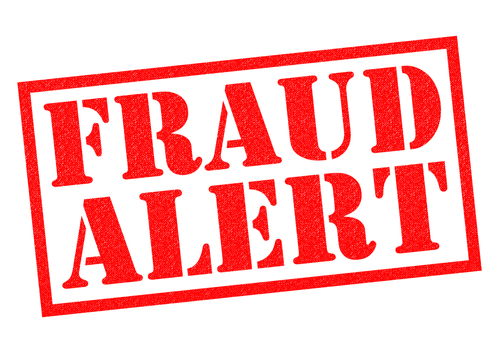SPRINGFIELD – A recent news report highlights how large the ongoing influx of migrants has become in Illinois, as pushback continues for Gov. JB Pritzker’s proposal for $1 billion in tax hikes to cover the crisis.
The Pritzker Administration faces criticism for the improper handling of COVID-19 aid programs.
With tax season under way, officials are warning that an increase in tax scams are on the horizon as well. Meanwhile, the state’s unemployment rate remains the third highest in the country.
Report says Illinois is One of the Top Destinations for Migrants

A recent Bloomberg News report points to the massive influx of migrants who are heading to Illinois once they enter the United States. The article examined the addresses provided to by migrants for immigration court cases. According to the report’s metrics, there was an increase of 821 percent in the number of migrants listing an Illinois address from just 2021 to 2023.
Gov. Pritzker has made it a major priority of his administration to provide services for migrants, stating that he wanted to make Illinois the “Most Welcoming State in the Nation” for non-citizens. Illinois is one of just two states providing free healthcare for non-citizens, along with numerous other taxpayer-funded services. When Pritzker took office, spending on non-citizen programs was just a few million dollars per year, but that has ballooned to roughly $1 billion per year over the last two years.
Last week, the Governor presented his annual budget proposal, including $1 billionin tax increases on families and businesses.
State Senator Dave Syverson (R-Cherry Valley) says it’s no coincidence that the Governor’s tax hike proposals so closely match up with the amount his administration has been spending on migrant services. She says the Governor needs to focus on programs helping Illinois citizens, instead of using the taxpayers to fund his myriad of programs for migrants.
Legislative Audit Commission Criticizes DCEO’s Handling of COVID-19 Program

On Feb. 20, the Legislative Audit Commission held a hearing at the Illinois State Capitol to review the state audit findings of the Business Interruption Grant Program, which allocated $585 million to help small businesses negatively impacted by the COVID-19 pandemic.
The Office of the Auditor General’s audit revealed that $11 million was paid out to ineligible participants under the state program as a result of the Department of Commerce and Economic Opportunity’s (DCEO) decision to use their own eligibility category for the small-business portion of the program instead of what the General Assembly passed.
DECO chose to use the pre-existing Grant Accountability and Transparency Act to justify hiring an outside vendor to delegate the program’s funds, resulting in higher costs.
During the Legislative Audit Commission hearing, Senate Republicans questioned the decision to hire outside community partners to distribute the funds and were particularly critical of the disclosure that one of those outside partners had made a $5,000 campaign donation to DCEO Assistant Director Michael Negron, who served as one of the lead main grant administrators.
As a result of the revelation about the campaign contribution, DCEO opened an internal investigation. The results of that investigation were sent to the Office of Executive Inspector General, who determined that there was no conflict of interest.
Tax Season Means Increase in Scammer Activity

According to a recent warning from the Illinois Comptroller’s Office, Illinois residents may find themselves under attack from scammers this tax season. In particular, the Comptroller’s Office is warning Illinoisans to be vigilant when it comes to phone calls, emails, and letters that are supposedly from the Internal Revenue Service (IRS).
These scammers will impersonate the IRS to demand payments via wire transfers or gift cards, and to threaten jail or deportation if their demands are not met.
Additionally, some scammers will send an email that will look like it’s from the IRS and infest users’ computers with a malware virus if they click on any links.
It is important to remember that the IRS will not email, text, or call if residents owe money. Instead, they will receive a bill in the mail, but wire transfers or gift cards will not be an acceptable form of payment. Some tips to help identify fake IRS scam letters, include looking for irregular fonts, and bad grammar.
Another common scam targets college faculty and students by sending out emails that end in .edu that request they complete a form with their personal information in order for the scammer to fake unemployment claims in their name.
If taxpayers receive a 1099-G form, which is meant for unemployment claims, despite not filing for unemployment benefits, they should immediately report it to the Illinois Department of Employment Services at ides.illinois.gov.
The final tax season scam that the Comptroller’s Office is warning Illinoisans to be wary of involves the unclaimed tax refund. Under this ploy, scammers will use the allure of easy money as a means to steal personal information.
Illinois residents can track the status of their state tax refunds at myrefund.illinoiscomptroller.gov and are encouraged to report all unsolicited letters, emails, or texts from IRS impersonators to the IRS at phishing@irs.gov.
Illinois’ Unemployment Rate Remains the Nation’s 3rd-highest

In his Budget Address, Gov. Pritzker spoke about how a few industries were able to create jobs for Illinois residents while conveniently failing to mention the ongoing unemployment surge during his tenure.
According to data from the U.S. Bureau of Labor Statistics, Illinois has the third worst unemployment rate in the country with almost 5 percent of the state’s workforce being unemployed. Meanwhile, the national average for unemployment is 3.7 percent as of December 2023.
Illinois ranks 42nd in the nation in non-farm jobs, with a gain of just 57,800 positions in 2023. Health services, federal government, and private education were the largest areas of increased employment last year. Leading the state in loss jobs, 25,900 jobs were loss in the business and professional sector last year.
The continued loss of residents from the state has had a heavy impact on job recovery since the onset of the COVID-19 pandemic. Last year, the U.S. Census Bureau reported 32,826 residents left the state. This marks the 10th straight year of the state losing residents. Overall, the number of Illinois residents unemployed increased last year by 16,500.
Senator Syverson says to decrease the state’s unemployment rate, Illinois needs to put in place policies that provide relief to employers and employees and incentivizes economic development.

